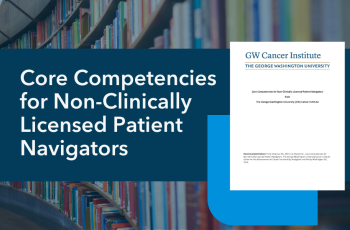This work was supported by Cooperative Agreement #NU58DP007539-01 from the Centers for Disease Control and Prevention (CDC).
Early Detection and Treatment
The National Comprehensive Cancer Network and the American Cancer Society are leading a nationwide effort to resume appropriate cancer screening and treatment to prevent excess deaths. A joint statement was released on January 28, 2021, with 76 organizations uniting to express awareness and urgency…
Choosing your doctor is one of the most important decisions a person makes. This worksheet from the American Cancer Society provides some tips to help patients do this.
A resource from the American Cancer Society to help patients know the signs and symptoms of colorectal cancer. Find out how colorectal cancer is tested for, diagnosed, and staged.
The American Cancer Society 2018 guideline for colorectal cancer screening recommends that average-risk adults aged 45 years and older undergo regular screening with either a high-sensitivity stool-based test or a structural (visual) exam, based on personal preferences and test availability. As a…
Every 2 years, researchers from the American Cancer Society analyze data for cancer risk factors and screening from the Centers for Disease Control and Prevention (CDC) to strengthen cancer prevention and early detection efforts. This year the findings are published in the journal Cancer…
These competencies can be used by health care professionals and institutions considering qualifications for patient navigators.
The American Cancer Society developed these reports to summarize the current situation and to provide guidance on how public health agencies, health care providers, and screening advocates across the nation can promote and deliver cancer screening appropriately, safely, and equitably during the…
This guidebook includes information on both old and new barriers to cancer screening, delivers updated findings on how the pandemic has impacted cancer care, and shares tested messages that will resonate throughout the pandemic.
This guidebook shares the findings and recommendations gathered from market research and is further designed to help in the education, empowerment, and mobilization of those who are not getting screened for colorectal cancer.
The guide includes extensive and empowering information, online resources, support organizations, and an inspiring ‘insider perspective’ from an incredible young student currently undergoing treatment for cancer.
